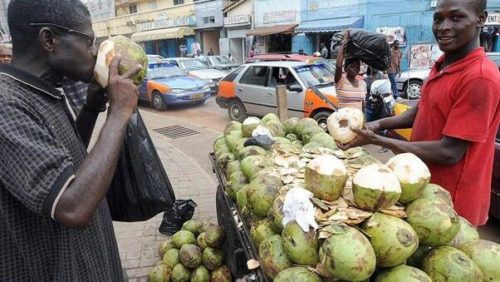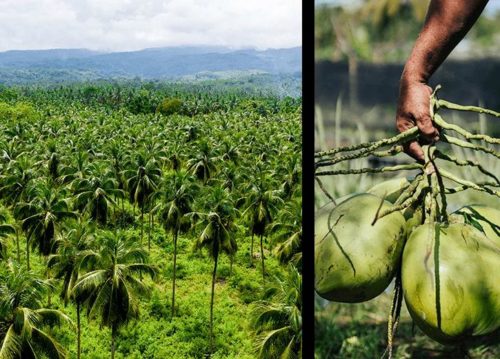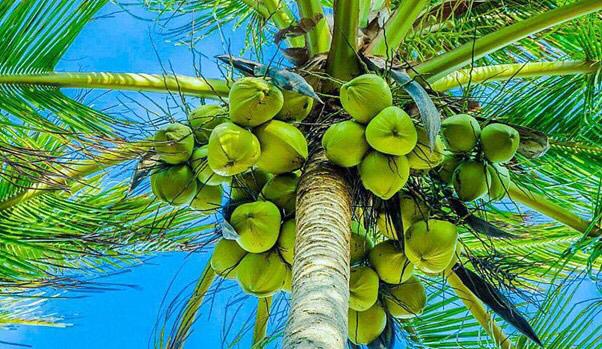In Ghana, coconuts have always been more than just a fruit, they’re a cultural delight, a roadside refreshment, and, lately, a bit of a head-scratcher for consumers.
Whether you’re cruising through Accra or strolling along the coast, the iconic coconut seller perched on the roadside with a machete and a heap of green treasures is a sight that feels uniquely Ghanaian. But here’s the twist, the price of this tropical treat keeps climbing, leaving many scratching their heads in disbelief.
Why So Pricey?
For a fruit that isn’t imported, is plucked straight from backyard farms, and doesn’t need flashy packaging or marketing, coconuts are becoming surprisingly expensive. A few years ago, a fresh coconut sold for as little as GHS 2. Today, you might need to part with GHS 5 or more, depending on your location.
Ask a coconut seller why, and you’ll hear a variety of reasons, some practical, others hilariously absurd. A popular explanation making the rounds? “The dollar is going up, so the price of coconuts has to follow!” That’s right. Even though coconuts grow on local soil, some sellers blame the rising exchange rate for the price hikes, sparking chuckles and debates among buyers.
A Demand supply puzzle
Here’s where it gets tricky. Coconuts are everywhere in Ghana. From lush farms in the Western and Volta Regions to backyard trees in suburban Accra, you’d think the supply is endless. But the rising demand for coconuts as a “superfood” might be a contributing factor. Coconut water is now touted as a health elixir, while coconut oil and other by-products are in high demand globally.

Some local farmers are switching gears, opting to sell their produce in bulk to processing companies or for export, leaving fewer coconuts for the roadside market.
The Business of Coconut
For entrepreneurs, the coconut price hike might actually be a golden opportunity. With value addition, coconut-based businesses can thrive. Think beyond fresh coconut water, there’s potential in coconut oils, creams, and even artisan coconut-based snacks. These ventures could offset local price concerns by catering to both domestic and international markets.
OK Frimpong Reveals Artistes Covered Own Costs for Medikal’s Sold-Out O2 Concert
Can We Blame Economy?
While blaming the dollar is amusing, there’s a grain of truth to the economic woes affecting prices. Transportation costs, inflation, and rising labor expenses all trickle down to the humble coconut. Sellers who rely on delivery services to restock their supply face higher fuel and logistics costs, which they pass on to consumers.

A fruitful future?
Ghana’s coconut story is a blend of humor, economics, and opportunity. While consumers grumble about rising prices, sellers are finding creative ways to stay afloat. The industry has untapped potential for expansion, and with strategic investments, coconuts could become more than just a roadside staple.They could be a major player in Ghana’s agribusiness landscape.
So the next time you sip on that refreshing coconut water, remember: it’s not just a fruit; it’s a microcosm of Ghana’s economy, resilience, and entrepreneurial spirit, served with a slice of humor on the side!
Source: Circulartmedia


